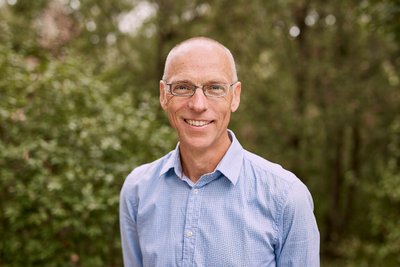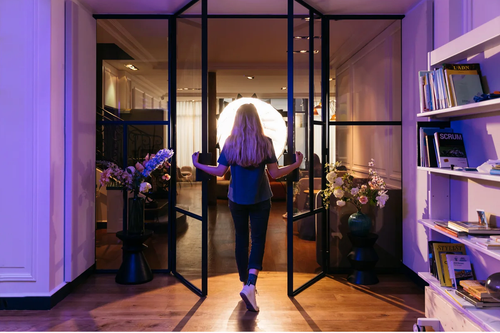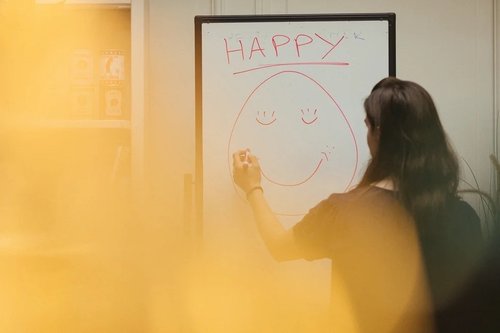I’ve lost purpose in my work: what now?
Jan 04, 2022
5 mins


I’m frustrated too often.
I’m not enjoying it anymore.
I’m not growing.
I need to find a better job.
This needs to change.
Now!
These are the kind of thoughts that run through our mind when we lose purpose in work. We start a frantic search for the next step: a better job, a better team, a better location. But time spent searching feels like time lost, so change needs to happen fast.
While this approach is really strong, empowering and vibrant, there’s also something in it that could prevent more fulfilling change. Sometimes it’s worth taking a bit more time sitting with the discomfort, not yet knowing where to go next. Especially if you’ve changed or moved a lot recently.
Here are seven suggestions for what to do when you feel you’ve lost purpose in your work.
1. Take a pause
Often the searching takes time and can become draining—exhausting, even—especially when you also need to perform in your current job. As counter-intuitive as it might feel, it can be beneficial to take a pause, both to give yourself a break and to create space for an intermediate step… even if the next move seems completely logical.
In modern society we tend to think about change as a two-step process: from the old and outdated straight to the new, which we hope will bring fresh energy and opportunities. In many traditional cultures, however, change is approached as a three-step process, adding an intermediate, “in-between” phase of not knowing, of listening and exploring. This pattern is present in many of the rituals and rites of passage marking transitions in life.
The mythologist Joseph Campbell studied this in detail across many cultures and wrote about it in his seminal book The Hero with a Thousand Faces. The pattern that he described is referred to as “the hero’s journey.” We all know it from tales such as The Lord of the Rings or Star Wars. The main character gets a call to go on a journey beyond the status quo of their life. It is often refused at first but then it becomes inevitable and it leads to all kinds of challenges and experiences. When all the tasks are completed, the protagonist returns to start a new life, bringing the gifts of the journey back to the people.
The message in the hero’s journey is valid for what we’re talking about here. The feeling of having lost purpose in work is like a call to go on this journey. In our modern two-step approach, we react to this call with immediate action. It will bring incremental change, which is positive: it heralds relief and growth. However, for more lasting fulfillment, we need to find ways to connect with our authentic self and purpose. For that, most of us need to go on some kind of hero’s journey.
As I wrote in the first article of this series (What’s your purpose? Moving beyond the ‘Why?’), much of what we end up doing is informed by patterns from the past or from our culture. These patterns get in the way of us listening clearly to our own unique voice. So, to move forward, it makes sense to spend more time sitting with the discomfort—as paradoxical as that may feel—to look at what you’ve outgrown and are ready to let go of. Then you can listen with new ears to what your next step could be.
2. Befriend the discomfort
There is value in sitting with discomfort. We’re so used to looking for the “good” emotions that feeling lost and sad seems wrong. However, these feelings are as much a part of the human experience as joy and excitement, and running away from them will prevent you from harvesting the wisdom that’s buried beneath. It’s like turning away from the call to embark on the hero’s journey. Try to be with what is and embrace it. Then a space opens up for asking and answering questions that might help you. How did you get to this place? What made you choose this job or this assignment? What was driving you? And within that, what is truly you, and what are you trying to live up to the expectations of others?
One of my clients was so scared by the discomfort of not knowing what was next that all her energy went into the search for “the new project,” from the moment she woke up until the moment she went to bed. It was exhausting for her. She finally realized that beneath the frantic search was a fear of making the wrong decision. Only then could she slow down and start creating space to work out what she really wanted.
We’re often driven by a wish to be seen as successful. We want to fit in and feel valued. It’s good to check who’s been in the driving seat for your decisions. Ask yourself if it’s time to say goodbye and let another voice within you take the lead.
3. Appreciate the here and now
If there’s no next step or solution around the corner, then where do you find comfort? In the here and now. This is as simple as it is tough—unless you’re an experienced meditator or yogi, maybe. The best way is to set an intention for yourself and, several times a day, spend a few minutes consciously focusing on this. If you practise yoga, meditation or qigong, this is the time to become more disciplined about it. And establish a gratitude journaling practice: every morning or evening, write about what you’re grateful for in your life right now.
There has been a lot of research into the benefits of bringing more gratitude into our lives of late. You can find some excellent suggestions from the Greater Good Science Center at the University of California, Berkeley. Bringing focus to these habits will help you find a place of comfort in these uncomfortable times.
4. Stay until you have clarity
Make a commitment to stay until you’ve worked out the next courageous step, not just a quick escape (unless you’re in a situation where you’re being hurt, of course). Give yourself time to really be in the space “in between” and do the work that’s needed.
How long? That’s hard to say, but give it at least a few weeks —or even a few months. You may need to let go of your current work as your primary focus and consciously create space for your journey to come to the fore. It doesn’t have to mean quitting, as long as you can manage to shift the focus. But for some, it might be time for a real break or even a sabbatical, to take the leap and quit now without having a new job in the bag. Sometimes we need to be more radical and remove what’s using up the energy we need to be able to take a step forward.
5. Deepen your understanding of the next step
Once we start to understand the role that we’ve been playing and whose play we’ve been acting in—to use the metaphor I introduced in the first article—we can start to move beyond what’s not ours and listen with new ears to the idea of our next step. This will be the focus of the next article in our series.
6. Surround yourself with support
It’s hard to navigate this “in-between” space by yourself—especially if there are people around you who believe you should be working on a fix and don’t understand why you’re slowing down. It’s good to ask yourself which friends and colleagues are supportive of your journey and which are not: spend more time with the ones who are.
Sharing with people in a similar space can be very supportive too. And it can be useful to seek the help of a transition coach or guide. Being seen by someone who knows the general terrain you’re moving through and who can give you some pointers can make the journey a lot more effective and enjoyable.
7. Do things that give you energy
To approach the experience of losing purpose in this way can feel like hard work, however meaningful the process is. The truth is that you can also lose your balance focusing on this inner journey—which is not what you want. What are the things you can do now that give you energy—even if there’s no solution to the bigger questions yet? What do you love to do? Maybe it’s running, or dancing, or singing in a choir. Whatever it is, do it anyway. It will recharge your batteries until the bigger change is ready to happen.
Photo: Welcome to the Jungle
Follow Welcome to the Jungle on Facebook on LinkedIn and on Instagram and subscribe to our newsletter to get our latest articles every day!

More inspiration: Martin Cadée
Transition Guide and Organizational Culture Alchemist

Beyond capitalism: How to find purpose in your personal myth
In the third article in our series about finding purpose, transition guide Martin Cadée tells us to embrace the world of symbols.
Jul 08, 2022

What’s your purpose? Moving beyond the ‘Why?’
“Why do you do this work?”, “Why do you want to move on?”. Work is a continuous invitation, within your possibilities, to grow as an “actor”...
Nov 23, 2021

Advice for people pleasers: Breaking free from being “too nice” at work
Do you often say things like, "Yeah, sure, I can do that!" when in fact you don't have the bandwidth to do that? We've got you.
Dec 12, 2024

There’s no place like home: Does relocation hurt productivity?
Relocating often brings homesickness, but it’s part of the journey. Here’s how to embrace the change and make the most of it.
Oct 22, 2024

Should you take your office crush to the next level?
Is an office crush worth the risk, or more damaging to your career and reputation than you think?
Oct 09, 2024
The newsletter that does the job
Want to keep up with the latest articles? Twice a week you can receive stories, jobs, and tips in your inbox.

Looking for your next job?
Over 200,000 people have found a job with Welcome to the Jungle.
Explore jobs